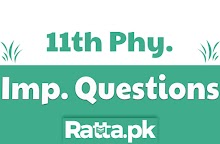The Oxford Dictionary defines humour in the following words. “The quality of action, speech and writing which excites amusement is called humour.”
A humorist is a quick and vigilant perceiver of funny side of all the things present around him. He accepts mankind as it is and loves it in spite of all its shortcomings. Even if he uses satire, it neither hurts nor blights. We have observed so many humorists in the history of literature. Though some were bitter in their style, their main purpose was the amendment of vices by correction. These great humorists were Shakespeare, Fielding, and Pope, etc. Chaucer is one of them.
Chaucer is the first great English humorist. Before him, we find no English literary work which reveals humour in the modern sense. Lowes remarks: “Long before Balzac, Chaucer conceived the human comedy.” Humour is stuff and substance of his art. His literary works reflect his perfection in the field of humour. In “Nun’s Priest’s Tale”, Cock’s abduction at the hands of Fox seems humorous. Chanticleer and Pertelote have been addressed as Sir and Madam. The study of the book, “The Prologue to the Canterbury Tales”, brings before us many qualities of Chaucer as a humorist. Let us study these qualities one by one.
First quality of Chaucer’s humour is that it is spontaneous and fresh and not the result of deliberate efforts. He uses pure irony when he depicts two culprits i.e. the Pardoner and the Summoner but his first and foremost aim is to entertain us by his art of narration. Except the depiction of these two characters, there is no sting in “The Prologue” in Chaucer’s ever-sympathetic humour. In his handling of the Wife of Bath, he criticizes her but not in a bitter way rather in a humorous way. In this way, he reminds us of Shakespeare’s treatment of Sir Toby in Twelfth Night and of Falstaff in Henry 4.
Second, Chaucer’s humour has great variety and is many sided. All his writings have abundance of variegated shapes. The Canterbury Tales is the best example of his many-sided humour. It is kind and patronizing in the case of the Clerk. It is semi-farcical in the case of the Wife of Bath. It is pointed and satirical in the case of the Pardoner and the Summoner. The prevailing feature of Chaucer’s humour is its urbanity. It is in this context that Masefield calls Chaucer “A great Renaissance gentleman mocking the Middle Ages.”
Third major quality of Chaucer as a humorist is use of paradox. He says something but suggests just the opposite to it. We can say, Chaucer often speaks with his tongue in cheek. Whenever he praises, it is not the praise rather it is criticism in disguise. For example, the Monk does not give any importance to the text which condemns hunting but Chaucer says, “And I said his opinion was good.”
Fourth quality of Chaucer as a humorist is his use of satire but in “The Prologue” his attitude is not didactic rather secular, not satirical but humorous. Hugh Walker admits: “In ‘The Prologue to the Canterbury Tales’, the prevailing spirit is not at all satirical but humorous.”The satirical tone is present in the characters of the Monk, The Friar, the Prioress and the Summoner, etc. Then, we have another satirical portrait of the Franklin who is described as Epicurus own son, and the Saint Julian of his country.
Fifth quality of Chaucer as a humorist is his use of irony. Most of the time, his humour takes the form of irony because it overwhelms the bitterness of satire. He employs different sorts of irony. In the depiction of the Knight’s character, first he talks about his bravery, skill and adventures but then he tells us that the Knight is as gentle as a maid. He cannot harm anybody. “And of his port as meeke as is a mayde.”
Similarly, he exaggerates the character of the Prioress. He tells that the Prioress does not let any morsel fall. She also does not let her fingers dip in the sauce. Her table manners clearly show that she is brought up in an environment far away from the monastic life.
The height of tolerance comes when a writer makes fun of himself also. In most of his, master-pieces, he has given a humorous description of himself. In “The Prologue to the Canterbury Tales”, he refers to himself as a simple and unlettered man: “My wit is short, as you may well understand.”
To sum up, we can say that humour is the part and parcel of Chaucer’s poetry because he is gifted with the powers of ridiculing the follies and the hypocrisies of his day but never like Swift and Langland. The critics may be divided in opinion to call Chaucer the father of the English poetry but without any doubt and fear of contradiction, he is the pioneer and “The First Great English Realist as well as Humorist” in the world of English literature.
A humorist is a quick and vigilant perceiver of funny side of all the things present around him. He accepts mankind as it is and loves it in spite of all its shortcomings. Even if he uses satire, it neither hurts nor blights. We have observed so many humorists in the history of literature. Though some were bitter in their style, their main purpose was the amendment of vices by correction. These great humorists were Shakespeare, Fielding, and Pope, etc. Chaucer is one of them.
Chaucer is the first great English humorist. Before him, we find no English literary work which reveals humour in the modern sense. Lowes remarks: “Long before Balzac, Chaucer conceived the human comedy.” Humour is stuff and substance of his art. His literary works reflect his perfection in the field of humour. In “Nun’s Priest’s Tale”, Cock’s abduction at the hands of Fox seems humorous. Chanticleer and Pertelote have been addressed as Sir and Madam. The study of the book, “The Prologue to the Canterbury Tales”, brings before us many qualities of Chaucer as a humorist. Let us study these qualities one by one.
First quality of Chaucer’s humour is that it is spontaneous and fresh and not the result of deliberate efforts. He uses pure irony when he depicts two culprits i.e. the Pardoner and the Summoner but his first and foremost aim is to entertain us by his art of narration. Except the depiction of these two characters, there is no sting in “The Prologue” in Chaucer’s ever-sympathetic humour. In his handling of the Wife of Bath, he criticizes her but not in a bitter way rather in a humorous way. In this way, he reminds us of Shakespeare’s treatment of Sir Toby in Twelfth Night and of Falstaff in Henry 4.
Second, Chaucer’s humour has great variety and is many sided. All his writings have abundance of variegated shapes. The Canterbury Tales is the best example of his many-sided humour. It is kind and patronizing in the case of the Clerk. It is semi-farcical in the case of the Wife of Bath. It is pointed and satirical in the case of the Pardoner and the Summoner. The prevailing feature of Chaucer’s humour is its urbanity. It is in this context that Masefield calls Chaucer “A great Renaissance gentleman mocking the Middle Ages.”
Third major quality of Chaucer as a humorist is use of paradox. He says something but suggests just the opposite to it. We can say, Chaucer often speaks with his tongue in cheek. Whenever he praises, it is not the praise rather it is criticism in disguise. For example, the Monk does not give any importance to the text which condemns hunting but Chaucer says, “And I said his opinion was good.”
Fourth quality of Chaucer as a humorist is his use of satire but in “The Prologue” his attitude is not didactic rather secular, not satirical but humorous. Hugh Walker admits: “In ‘The Prologue to the Canterbury Tales’, the prevailing spirit is not at all satirical but humorous.”The satirical tone is present in the characters of the Monk, The Friar, the Prioress and the Summoner, etc. Then, we have another satirical portrait of the Franklin who is described as Epicurus own son, and the Saint Julian of his country.
“For he was Epicurus owene sone, ----A point to be noted in this satire is that his victim is the individual not the institution. Even, his satire is friendly and sympathetic. Legouis remarks: “Amongst the writers of genius the one who strikes us soonest as a friend is Chaucer.”
Saint Julian he was in his contree.”
Fifth quality of Chaucer as a humorist is his use of irony. Most of the time, his humour takes the form of irony because it overwhelms the bitterness of satire. He employs different sorts of irony. In the depiction of the Knight’s character, first he talks about his bravery, skill and adventures but then he tells us that the Knight is as gentle as a maid. He cannot harm anybody. “And of his port as meeke as is a mayde.”
Similarly, he exaggerates the character of the Prioress. He tells that the Prioress does not let any morsel fall. She also does not let her fingers dip in the sauce. Her table manners clearly show that she is brought up in an environment far away from the monastic life.
“Hir over-lippe wiped she so cleneAnother quality of Chaucer’s humour is that it has sound theme. When we read the details of a character, think of its flaws and shortcomings, we start to take pity on the character. The Wife of Bath has many love-affairs in youth except five husbands. No doubt, Chaucer’s style is humorous but we feel pity on such a woman who is stigma on womanhood and does not have the husband of her liking even after marrying five times.
That in hir coppe ther was no ferthyng sene
Of Greece, when she drunken hadde hir draughte.”
The height of tolerance comes when a writer makes fun of himself also. In most of his, master-pieces, he has given a humorous description of himself. In “The Prologue to the Canterbury Tales”, he refers to himself as a simple and unlettered man: “My wit is short, as you may well understand.”
To sum up, we can say that humour is the part and parcel of Chaucer’s poetry because he is gifted with the powers of ridiculing the follies and the hypocrisies of his day but never like Swift and Langland. The critics may be divided in opinion to call Chaucer the father of the English poetry but without any doubt and fear of contradiction, he is the pioneer and “The First Great English Realist as well as Humorist” in the world of English literature.
You may also like:
This is the post on the topic of the Chaucer as a Humorist - use of Irony, Wit and Humour in Canterbury Tales. The post is tagged and categorized under in
Education News,
English Literature Notes
Tags. For more content related to this post you can click on labels link.
You can give your opinion or any question you have to ask below in the comment section area. Already 0 people have commented on this post. Be the next one on the list. We will try to respond to your comment as soon as possible. Please do not spam in the comment section otherwise your comment will be deleted and IP banned.








No comments:
Write comments